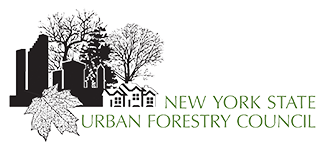In their recent paper in Urban Forestry and Urban Greening, “Long-Term Remediation of Compacted Urban Soils by Physical Fracturing and Incorporation of Compost,” study authors Miles Sax, Nina Bassuk, Harold van Es, and Don Rakow published their findings after twelve years of applied research. The technique, “Scoop & Dump Soil Remediation,” was introduced in a previous Council blog post about Urban Horticulture Institute research.
From the Urban Forestry and Urban Greening paper’s Abstract:
On the Cornell University campus a long-term study has measured the impacts of a soil remediation strategy on plant growth and soil quality using the Cornell Soil Health Test. The Scoop & Dump (S&D) process of soil remediation consists of physically fracturing compacted urban soils, incorporating large quantities (33% by volume) of compost with the use of a backhoe, and annually top dressing with mulch. This study was designed to investigate the impact of this remediation technique for the amelioration of compaction and degradation of soils in the urbanized environment.
From the Urban Forestry and Urban Greening paper’s Conclusion:
The authors found that the Scoop & Dump method of soil remediation showed improvement in soil quality indicators – bulk density, resistance, aggregate stability, potentially mineralizable nitrogen, active carbon and organic matter content – compared to unamended sites. Over a period of 12 years, soil quality indicators – bulk density, active carbon and potentially mineralizable nitrogen – improved over time showing long-term beneficial effects of using the Scoop & Dump Technique.
The application of the Scoop & Dump soil remediation strategy is an appropriate method for restoring soils damaged by heavy equipment, building construction and urbanization impacts. With minimal annual maintenance including the addition of shredded bark mulch, these improvements in soil quality are maintained or enhanced over time. This technique offers a practical, research-based tool for green industry professionals, arborists and landscape contractors and has a strong potential for improving soil quality using locally sourced materials and sustainable methods.
Citation:
Sax, M.S., Bassuk, N., van Es, H., Rakow, D., Long-Term Remediation of Compacted Urban Soils by Physical Fracturing and Incorporation of Compost, Urban Forestry and Urban Greening (2017), http://dx.doi.org/10.1016/j.ufug.2017.03.023

